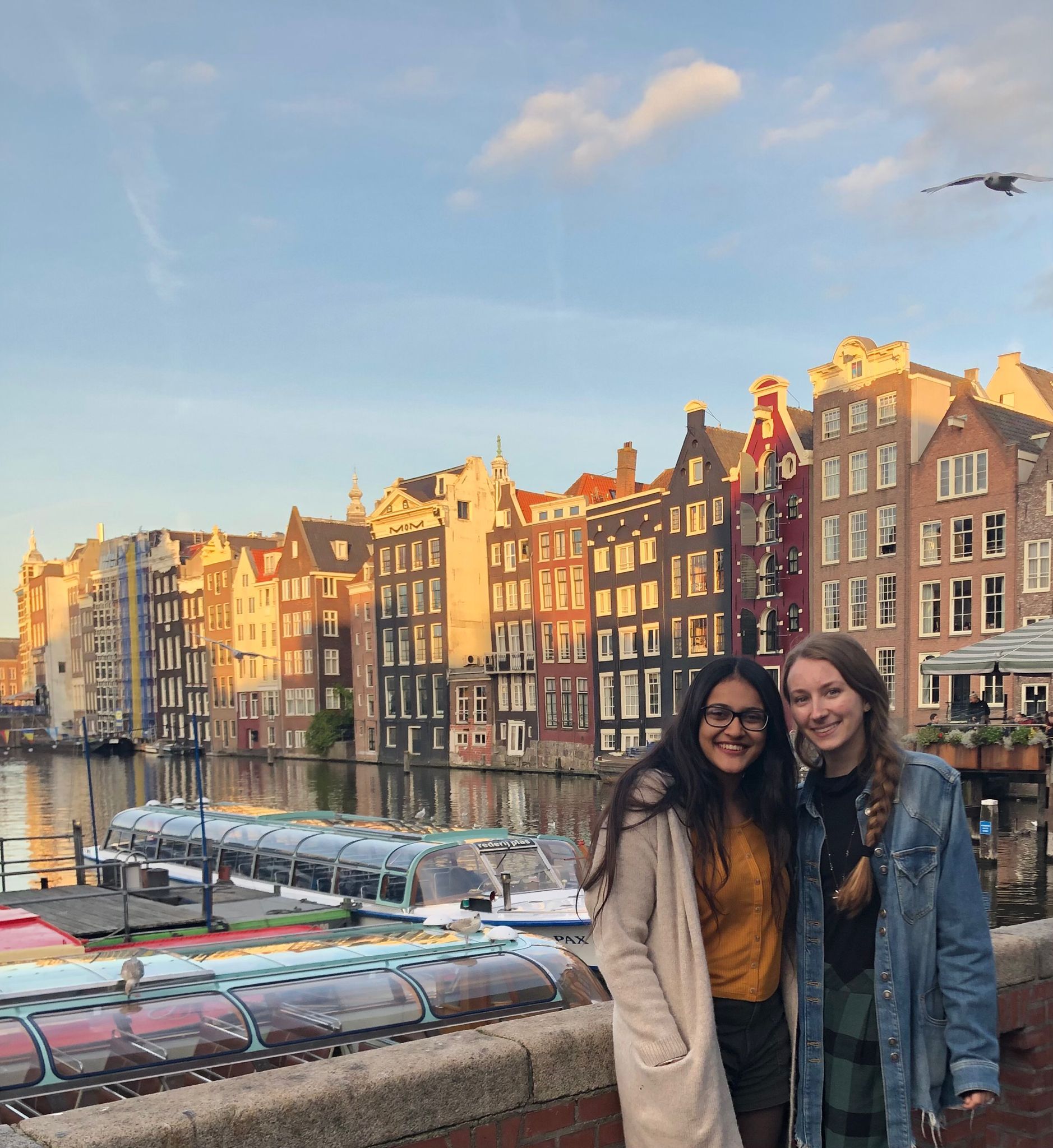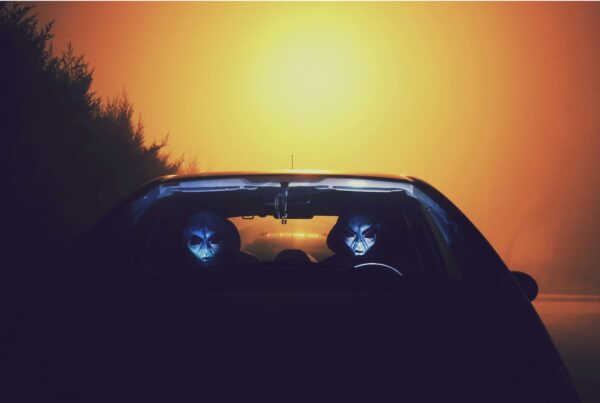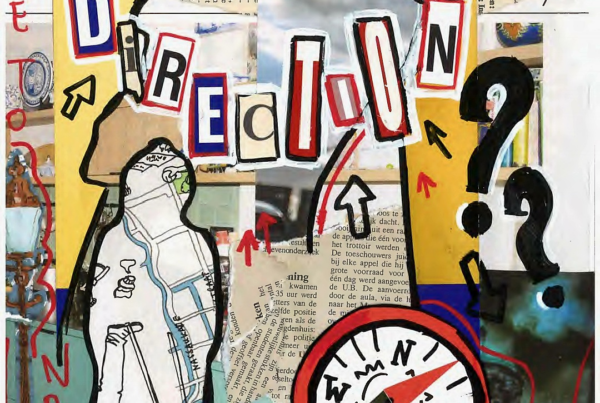

Suhaavi Kochhar & Veronica Szpak
What is it like to be a Research Master’s student? Four questions for Suhaavi Kochhar and Veronica Szpak, 2021 Research Master’s graduates.
What is the most useful thing that you’ve learned from Psychology?
Veronica: ‘I find it interesting how Psychology is considered a new science and that it is still developing many different research methods and interventions. Although much of the research is derived from theory, many findings can still be applied in the real world. I guess it’s like a marriage between philosophy and science.’
Suhaavi: ‘The most useful thing I’ve learnt is the cohesion between different disciplines – whether it’s the biological, psycho-social, or cognitive-behavioural perspective – all of these come together and complement each other because human behaviour is so complex. So, I think the most useful thing I learned to appreciate is anamorphism – a certain thing can look different from different perspectives. In Psychology, we’re able to account for these multiple perspectives because the field has grown and diversified so much. We can use more than one lens to study a given phenomenon.’
What do you like about Research Master’s at UvA?
Veronica: ‘What I like in the Research Master is how even though you’re learning about a complex field like psychology, you’re given an opportunity to develop practical skills through all these methodology courses that are very useful if you’re going into research and working in academia.’
Suhaavi: ‘This is similar to Veronica’s answer but I also like the freedom to shape the programme the way we want. This can be seen from the fact that we have two years to develop methodological skills but also academic interests like specific topics within our major or minor we find interesting, along with hands-on research experience. The ability to pick and choose the different skills and projects that you want to work on gives us a lot of freedom to make the programme suited to us.’
What do you dislike about Research Master’s ?
Veronica: ‘This isn’t something I dislike per say, but it was difficult for me to shift to the block system because in the US we had courses for the whole semester.’
Suhaavi: ‘I was going to say the same thing! The four or eight weeks – it’s nice because you’re very focussed on one topic at a time – but it also just flies by and you feel you have exams every month. Not just an exam, but other submissions as well at the same time. So, overall it feels like a lot is happening really quickly.’
How has nature contributed to your life – during the pandemic and lockdown specifically?
Veronica: ‘For me, I think it has played an important role in the lockdown because you’re constantly inside studying and working. So, going out is always something I look forward to after being inside for so long.’
Suhaavi: ‘I think it changed my idea of having fun. For me, before the lockdown, the idea of fun was going to a café, or a shopping street, or someone’s house. But since the lockdown, we began making more outdoor plans – for example hanging out in the park, going for a walk, and it made me very appreciative of the green that’s around and realising that you can have fun without something materialistic. Nature really helped cope with a loss of a social life in one way and made up for it in another way.
I always liked plants, but I think I also began to give them a lot more time once the lockdown hit, and now my house is just full of plants. Every time there’s a new leaf on any one of them, I’m an excited puppy, and I don’t think I would have picked this up as a new hobby or read up so much about it had the lockdown not happened. And now, instead of a regular shopping street, I would rather go to a plant centre and look at all the different species they have. Veronica and I have also done this!’
How do you feel about the changing environments in your life now that the Research Master has come to an end and you’re entering a new phase in your life?
Veronica: ‘When I started the Research Master, I had no idea that it would end in a pandemic because everything was still on campus during the first few months. Now I am curious what the next phase of my life and research or academic career will look like as the pandemic is slowly coming to an end.’
Suhaavi: ‘I will finish the Research Master at the end of July, and that is sort of the end of my studentship! So, it is a bit overwhelming because I don’t know where the last two years went – out of which about one and half years went by in lockdowns. It just feels like you’re floating from one phase into the next. I will be starting my PhD at Radboud University in September, which means shifting to Nijmegen. It’s going to be quite the experience because I feel very settled and comfortable in this part of the Netherlands – whether it’s physically, socially, or emotionally – so it’s going to be a big step. But I’m also very excited because I feel prepared for this new stage in my life. It’s going to come with its challenges (…like moving my plants) but I’m thrilled.’

Suhaavi Kochhar & Veronica Szpak
What is it like to be a Research Master’s student? Four questions for Suhaavi Kochhar and Veronica Szpak, 2021 Research Master’s graduates.
What is the most useful thing that you’ve learned from Psychology?
Veronica: ‘I find it interesting how Psychology is considered a new science and that it is still developing many different research methods and interventions. Although much of the research is derived from theory, many findings can still be applied in the real world. I guess it’s like a marriage between philosophy and science.’
Suhaavi: ‘The most useful thing I’ve learnt is the cohesion between different disciplines – whether it’s the biological, psycho-social, or cognitive-behavioural perspective – all of these come together and complement each other because human behaviour is so complex. So, I think the most useful thing I learned to appreciate is anamorphism – a certain thing can look different from different perspectives. In Psychology, we’re able to account for these multiple perspectives because the field has grown and diversified so much. We can use more than one lens to study a given phenomenon.’
What do you like about Research Master’s at UvA?
Veronica: ‘What I like in the Research Master is how even though you’re learning about a complex field like psychology, you’re given an opportunity to develop practical skills through all these methodology courses that are very useful if you’re going into research and working in academia.’
Suhaavi: ‘This is similar to Veronica’s answer but I also like the freedom to shape the programme the way we want. This can be seen from the fact that we have two years to develop methodological skills but also academic interests like specific topics within our major or minor we find interesting, along with hands-on research experience. The ability to pick and choose the different skills and projects that you want to work on gives us a lot of freedom to make the programme suited to us.’
What do you dislike about Research Master’s ?
Veronica: ‘This isn’t something I dislike per say, but it was difficult for me to shift to the block system because in the US we had courses for the whole semester.’
Suhaavi: ‘I was going to say the same thing! The four or eight weeks – it’s nice because you’re very focussed on one topic at a time – but it also just flies by and you feel you have exams every month. Not just an exam, but other submissions as well at the same time. So, overall it feels like a lot is happening really quickly.’
How has nature contributed to your life – during the pandemic and lockdown specifically?
Veronica: ‘For me, I think it has played an important role in the lockdown because you’re constantly inside studying and working. So, going out is always something I look forward to after being inside for so long.’
Suhaavi: ‘I think it changed my idea of having fun. For me, before the lockdown, the idea of fun was going to a café, or a shopping street, or someone’s house. But since the lockdown, we began making more outdoor plans – for example hanging out in the park, going for a walk, and it made me very appreciative of the green that’s around and realising that you can have fun without something materialistic. Nature really helped cope with a loss of a social life in one way and made up for it in another way.
I always liked plants, but I think I also began to give them a lot more time once the lockdown hit, and now my house is just full of plants. Every time there’s a new leaf on any one of them, I’m an excited puppy, and I don’t think I would have picked this up as a new hobby or read up so much about it had the lockdown not happened. And now, instead of a regular shopping street, I would rather go to a plant centre and look at all the different species they have. Veronica and I have also done this!’
How do you feel about the changing environments in your life now that the Research Master has come to an end and you’re entering a new phase in your life?
Veronica: ‘When I started the Research Master, I had no idea that it would end in a pandemic because everything was still on campus during the first few months. Now I am curious what the next phase of my life and research or academic career will look like as the pandemic is slowly coming to an end.’
Suhaavi: ‘I will finish the Research Master at the end of July, and that is sort of the end of my studentship! So, it is a bit overwhelming because I don’t know where the last two years went – out of which about one and half years went by in lockdowns. It just feels like you’re floating from one phase into the next. I will be starting my PhD at Radboud University in September, which means shifting to Nijmegen. It’s going to be quite the experience because I feel very settled and comfortable in this part of the Netherlands – whether it’s physically, socially, or emotionally – so it’s going to be a big step. But I’m also very excited because I feel prepared for this new stage in my life. It’s going to come with its challenges (…like moving my plants) but I’m thrilled.’



